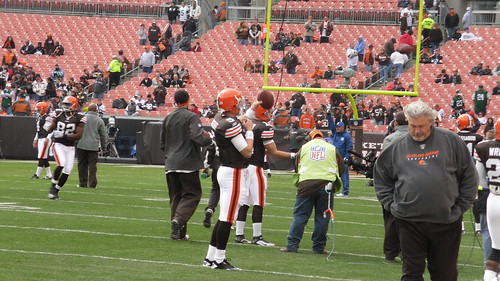
Emotionally Healthy Twins: A New Philosophy for Parenting Two Unique Children
PARENT-TO-BE: I have wonderful news! Brad and I are going to be the parents of two babies!"Two separate babies born at the same time" -- if only there were a more succinct way of saying that. Oh, wait, there is --- throughout much of the book Friedman uses the term "same-age siblings". The term would probably be less grating if she said something like, "I'm using this term interchangeably with the term 'twin' to drive home the point that they don't need to be treated like a pair anymore than non-twin siblings." But instead we're left to guess at the reasoning behind her goofy coinage. Other than language weirdness, here are my other problems with this book:
MOTHER-IN-LAW: What do you mean? Are you saying you're having twins?
PARENT-TO-BE: Yes, but we're already thinking about them as two separate children, because that's what they are: two separate babies born at the same time.
MOTHER-IN-LAW: What's wrong with calling them twins?
PARENT-TO-BE: Nothing's wrong with it. It's just that Brad and I feel strongly about relating to our babies as two distinct children rather than as a pair. And we hope that our friends and family will treat them as individuals as well.
MOTHER-IN-LAW: Hmmmm. Okay, well congratulations, anyhow!
- She gives no consideration to a cost/benefit analysis of her favorite prescription: alone time between a parent and one twin. I agree, it's great when I get to spend one-on-one time with one of my sons, but I can't imagine hiring a babysitter for one of them to provide this alone time with the other. Besides, don't you get this time naturally over the course of the day -- or do everybody else's twins synchronize their sleep schedule much better than ours do?
- She places such emphasis on the potential problems that she fails to discuss the nature of an "emotionally healthy" twin relationship. Maybe as a psychotherapist, it's natural for her to dwell on problems created by too little individuation, but it would be good to find examples of how twins relate to each other in a healthy way.
- Here's an example she gives about emotionally unhealthy twin behavior: "David's friends would often call him to get together -- to go to the park or movies or a party -- and at times David didn't go out with them because he felt badly that Jonny wasn't included." But wait -- that example is of her own children, whom she raised with this allegedly wonderful "new philosophy". So either the philosophy doesn't work, or some amount of twin drama is inevitable and parents need to focus more on managing it than on preventing it by treating their children as if they aren't twins. Possibly both.
- She makes almost no distinction between different types of twins -- identical versus fraternal, boy/girl versus same-sex. Perhaps she feels that the distinctions don't matter in terms of how you should treat your twins. But certainly they matter in terms of how twins are perceived -- identical twins are more likely to be perceived as "one and the same", and I suspect conflict among twins is discouraged more in girl/girl twins than in other configurations.
Ultimately, though, this book left me lacking a clear picture of what raising emotionally healthy twins is like. Perhaps, as Christina suggested, the next book should be a more generic one rather than one solely about twins. Perhaps Friedman is right that the "twin mystique" is a source of a lot of twin problems -- a viewpoint that would argue against running a website devoted to twinness.
Twinometer: 6/10.

